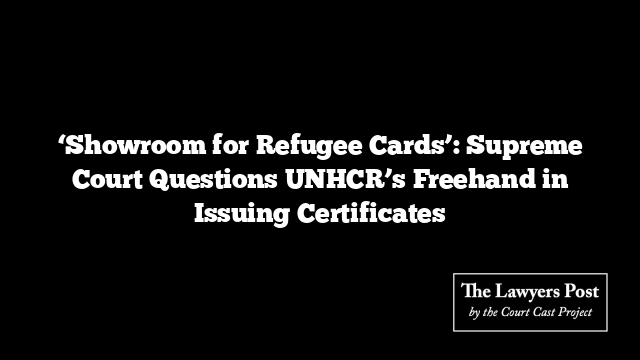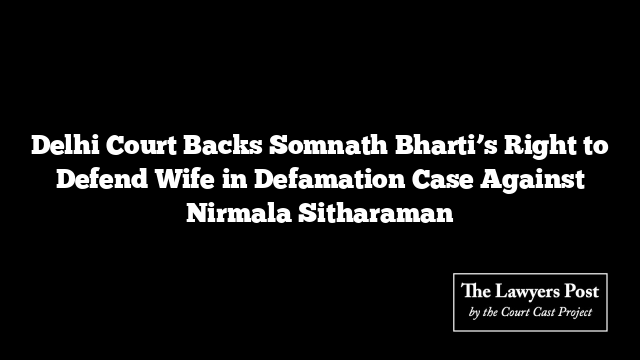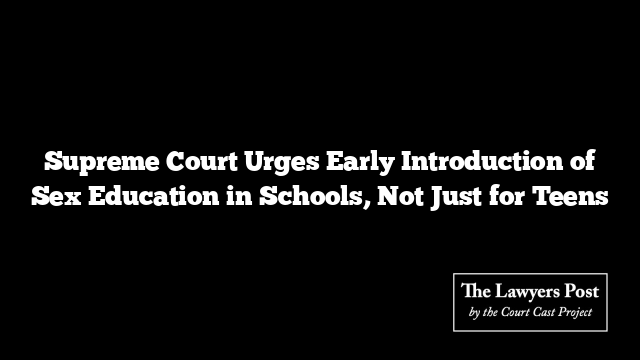The Supreme Court has voiced sharp concern over what it described as the United Nations High Commissioner for Refugees (UNHCR) turning its certification process into a free-for-all in India, suggesting that refugee cards appear to be distributed too liberally.
A Bench of Justices Surya Kant and Joymalya Bagchi made the observation while hearing a plea by a Sudanese national seeking protection from alleged arbitrary detentions of African nationals in Delhi. The petitioner, who has lived in India since 2013 with his wife and two young children, holds a UNHCR refugee card.
Upon learning this, Justice Surya Kant remarked dryly, “They’ve opened a showroom here. They are issuing certificates to everyone.” The Court, however, refrained from passing further comments on the UN body.
Appearing for the petitioner, Senior Advocate S. Muralidhar countered that UNHCR cards are not granted casually. He explained that the agency subjects applicants to detailed scrutiny — verification, interviews, and cross-checks — often over several years, before recognition is granted. He also noted that both the Ministry of Home Affairs and the Foreigners Regional Registration Office differentiate between UNHCR-recognised refugees and other foreign nationals.
Muralidhar further drew the Court’s attention to what he described as an ongoing “targeted drive” against African nationals in Delhi, claiming arbitrary detentions had caused fear among asylum seekers awaiting relocation to other countries.
Justice Bagchi, however, pointed out that India has not ratified the 1951 Refugee Convention, meaning that UNHCR recognition alone does not confer any enforceable legal rights under Indian law. “India does not ratify the international convention of refugees. So legal rights, and municipal law, is not there,” he observed.
The Bench advised the petitioner to pursue his asylum process through appropriate channels — particularly in the country where resettlement was being sought. “Your client has to go to Australia. Why don’t you move to Australia and take permanent citizenship?” Justice Bagchi suggested.
When Muralidhar requested interim protection from coercive action until the National Human Rights Commission (NHRC) decided the petitioner’s plea, the Bench declined, stating that it could not entertain similar petitions daily. “We don’t know how many matters we’ll get in a day then. We have to be very, very careful,” Justice Kant said before closing the case, noting that the petitioner’s matter was already pending before the NHRC.





